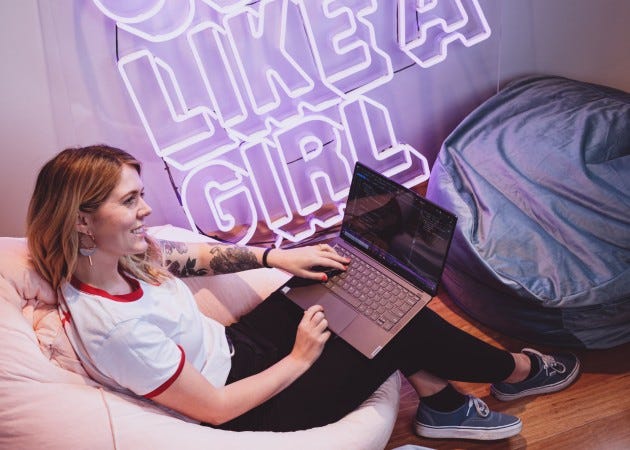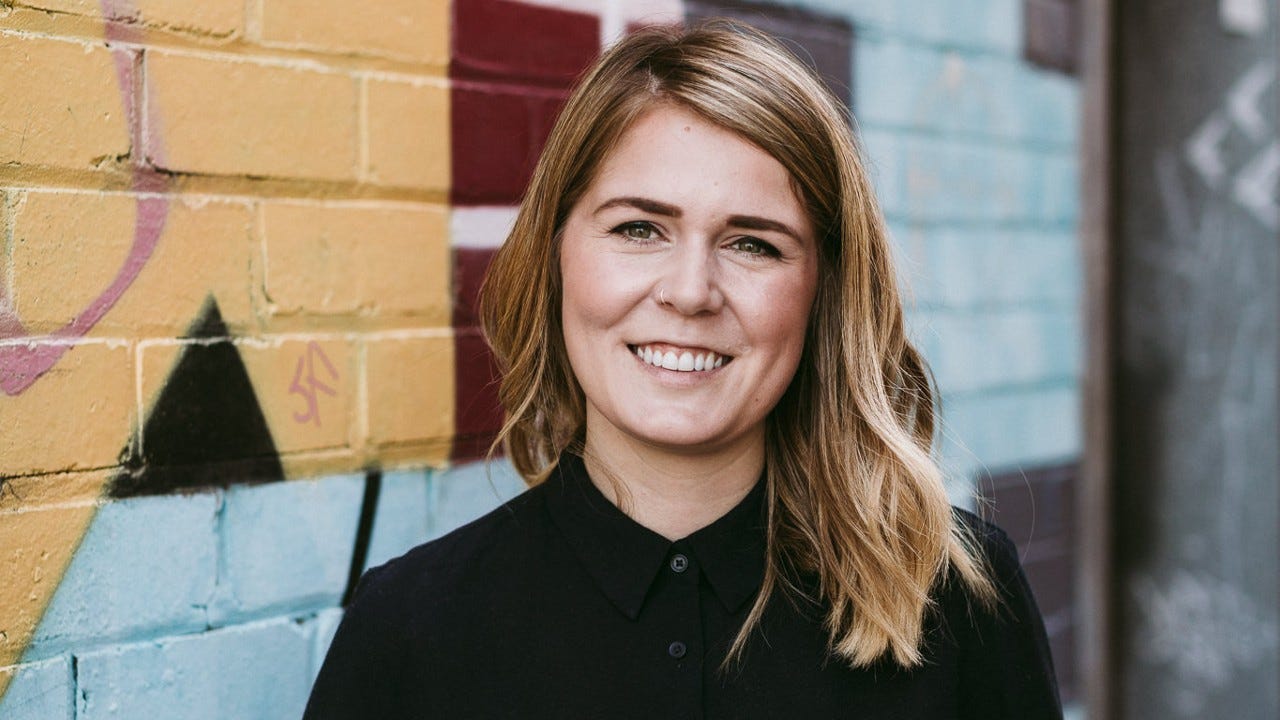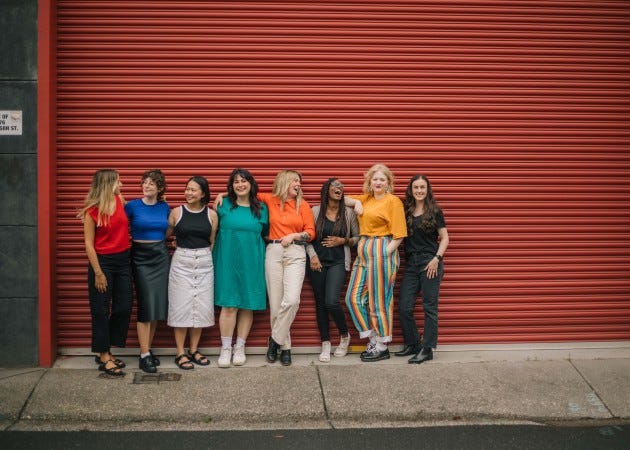Un-othering women who code
As a rookie software engineer, Ally Watson felt othered, exposed and uncomfortable in an ultra-male-dominated space. Now, she’s creating safer spaces for women in tech. Welcome to The Club.
“When you join these male-dominated teams, you have to accept that this might be the first time your manager has ever had to manage a woman.
“With that comes so much awkwardness. It feels like they’ve never even hung out with a woman before.”
Back in 2010, Ally Watson landed a job as a rookie engineer in a software design house.
“I was one of the youngest in the team, and the only woman in an office of 40,” she recalls.
The dev team worked collaboratively. Individuals would commit their code, send it to be checked, and then it would merge in with everything else.
But then, there was the “build bunny”. If a piece of code wasn’t right, this robot rabbit would alert the whole office. And to add to the humiliation, the engineer at fault had to wear a high-vis vest and glittery cowboy hat until the problem was fixed.
This wasn’t unusual in development jobs, Ally says. It’s the kind of practice that’s all a big joke between pals… until it’s not.
It’s designed to spotlight mistakes and isolate individuals. For someone already so conspicuous in her very existence, it added a whole other layer of anxiety.
“The visibility that comes with that identity in that space is excruciating,” Ally says.
“It affects so much of your day-to-day. It affects your confidence, it affects your ability to speak up,” she adds.
“As a junior, I broke the build. Countless times I found myself in the bathroom, crying. It was just such an awful experience working in that environment.”
Ally is half-laughing as she tells this story. It’s such a cliche it’s almost unbelievable; comical in its ridiculousness. But it’s clear the memory is still raw.
It’s experiences like this, within cultures like this, that led her to where she is today.
Ally has since emigrated from Scotland to Melbourne, where she started running meetups for women who code.
Those meetups evolved into full-blown events, and in 2017 Ally officially incorporated Code Like a Girl, a social enterprise dedicated to getting more women into tech jobs through internships, education programs, and industry myth-busting.
Ally and her team are striving to reshape the workforce into something more inclusive; something that works for everyone. And in 2022, Ally was awarded an Order of Australia medal for her work.

Death by a thousand cuts
In the days of cowboy hats and crying in the toilet, Ally would weigh up career opportunities not based on the work she would be doing, but whether she would be valued in the team.
She’s a feminine person, who grew up with sisters and has always had close women friends, so it took her longer to form connections with co-workers. She would never dare wear a dress to work.
But despite standing out (or perhaps because of it), Ally would find herself consistently overlooked.
In one role, she had a manager who paid her very little time or attention. When a male engineer joined the organisation at the same level, it took less than a week for this same manager to announce: ‘Finally, I have my prodigy.’
“I was heartbroken. I was trying so hard to be good at that job, and I just felt cast aside,” Ally recalls.
“What did I do that meant he wouldn’t extend himself to me?”
This is the kind of interaction that happens time and time again, meaning women aren’t getting the same opportunities as their male counterparts.
Yes, Ally has had excellent male managers, mentors and supporters along the way. But if she had to estimate how many men in positions of power were helpful and how many were decidedly not, it’s about 50/50.
“When you join these male-dominated teams, you have to accept that this might be the first time your manager has ever had to manage a woman or take a woman out for a coffee,” she says.
“With that comes so much awkwardness. Sometimes it feels like they’ve never even hung out with a woman before,” she adds.
“It’s these death-by-a-thousand-cuts social interactions that are really draining. A lot of men just aren’t able to see women in the same light as other men.”
Different path, same problems
It will come as no surprise that in building a startup (and a women-focused impact business at that), Ally has run into many of the same problems.
In the early days of the business, impact and equity weren’t really on the radar of Australia’s investors.
“I had to fight for people to even have a conversation with me, let alone convince them of the value of what we were doing and the capability for growth,” she says.
“I always felt I had no chance of getting funded, and every experience I’ve had in that space has made me feel validated in that,” she adds.
“In the end, I chose the pathway of bootstrapping. Just building it — pouring my own time and sweat equity into it — felt easier than trying to have those conversations.”
However, she’s seen male-led organisations with similar models secure funding, seemingly with the help of male mentors and benefactors.
“It’s the same experience I had as an engineer, but in the startup world. If men aren’t willing to build those relationships with women, we’re never going to get anywhere.”
Things are slowly changing. If she had launched Code Like a Girl today, Ally still isn’t sure she would have secured early funding, but she would have known where to look, who to speak to and who might actually listen. The pathways to support are there now.
“For today’s founders, that’s going to be game-changing,” she says.
“I worry sometimes that’s going to be the regret I have. Because it’s such an important organisation, it deserved investment. But that experience as a female founder stopped me from getting that, because it was too hard.”
Reengineering the system
According to the Tech Council of Australia, the biggest demographic of women seeking tech jobs are not fresh out of university, they’re 25+ and looking to change careers.
But for these women to enter and stay in the workforce, they need flexibility: the possibility of part-time roles and accommodation for childcare and other caring responsibilities.
In fast-paced, high-stress environments defined by deadlines, that doesn’t exist on any practical level, Ally says.
“There’s so much pressure on engineering teams. They’re the product builders at the core of the business models,” she explains.
“There is this dependency on a male-oriented working pattern. Everyone is full-time, everyone is stretched. A lot of the time they’re relying on superstar coders who get away with bad behaviour.”
Companies may have parental leave and flexible work policies, but if the culture doesn’t allow team members to lean into that, nothing is going to change.
If there’s one thread that has run through Ally’s career in software engineering, her journey as an entrepreneur, her personal and professional experiences and her view of the big-picture cultural challenges we’re facing, it’s the prevalence of these stumbling blocks for women that just aren’t there for men.
It’s awkward managers, the lack of mentorship, inflexible hours and feeling invisible — the little things that get in the way of women moving through their lives and careers unimpeded.
At every turn, there are microaggressions and emotional labour that stop women from just existing in this industry, let alone succeeding in it.
Frankly, it sounds exhausting.
For Ally, there have been times that staying in software engineering felt harder than walking away. No one would possibly have blamed her.
Changing that — removing those many, many hurdles — means changing the way the talent pipeline works, she says.
“The industry is still looking to the universities and traditional pathways to tech, and they’re asking where all the women are. The universities are looking to the schools and asking the same thing,” she explains.
“They’re waiting for some big cultural moment, where little girls suddenly realise they want to be the next Mark Zuckerberg. That’s not going to happen in our lifetime. We need to wake up to that,” she adds.
“Otherwise we’re going to still be here five years from now, scratching our heads and asking: where are all the women in tech? We have an opportunity to change that today.”
If Ally’s story resonates, join the conversation…
If you’re comfortable sharing, we would love to hear your perspectives in the comments.
Know someone who needs to read this?
Hit that forward button and share this newsletter with your business besties.
Join the club
Subscribe for a fortnightly tell-all from the entrepreneurial and startup sphere. Because it feels so good to share, doesn’t it?




As a senior data engineer, this article makes me feel seen